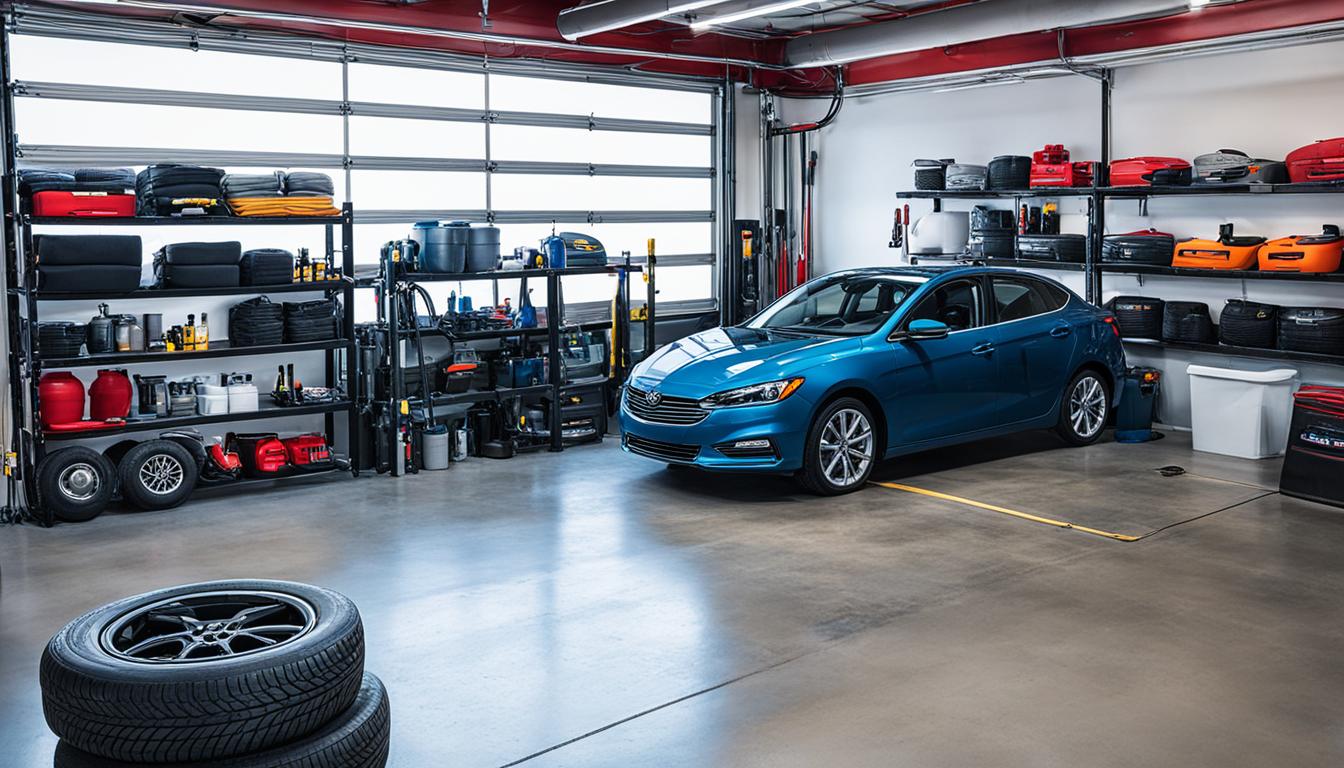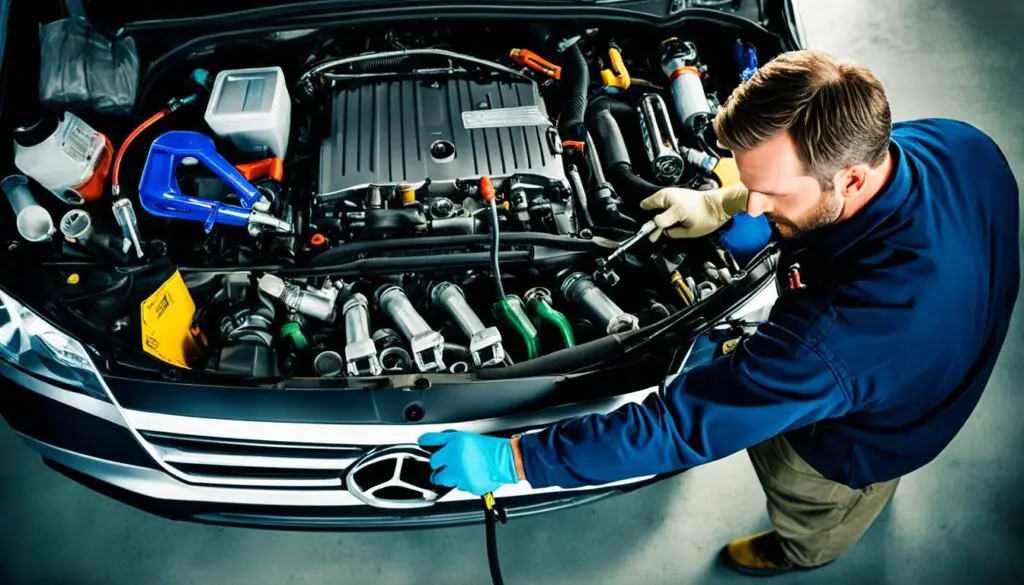
Car Health: Maintaining Your Vehicle’s Well-Being
Car health is crucial for maintaining your vehicle’s well-being and ensuring its peak performance and longevity. As a responsible car owner, it is important to prioritize regular maintenance and proper care to keep your vehicle running smoothly.
By staying on top of routine maintenance tasks such as oil changes, tire rotations, and brake inspections, you can prevent major issues from arising and prolong the lifespan of your car. These maintenance tasks help to keep your car’s engine running efficiently, extend tire life, and ensure optimal braking performance. Regular fluid checks and replacements, such as coolant and transmission fluid, also contribute to keeping your car in top shape.
Car care goes beyond just mechanical maintenance – keeping your car clean, both inside and out, is equally important. Regularly washing and waxing your car’s exterior can protect its paint from deterioration caused by UV rays and other environmental factors. Likewise, maintaining a clean interior prevents dirt and debris from accumulating, keeping your cabin fresh and free from potential damage.
Regular inspections of your car’s components and systems are essential in identifying any potential issues before they escalate into major problems. This includes checking belts, hoses, and the electrical system to ensure everything is functioning properly. Additionally, staying up to date with software updates for your car’s infotainment system and other electronic features is crucial for smooth operation and maximum functionality.
By prioritizing car health and investing in regular maintenance, you can drive with confidence, knowing that your vehicle is in optimal condition. Not only will this enhance your overall driving experience, but it will also save you from costly repairs down the line. Remember, taking care of your car today means enjoying its performance and longevity for years to come.
Key Takeaways:
- Regular maintenance and proper care are vital for maintaining car health and ensuring peak performance and longevity.
- Staying on top of routine maintenance tasks such as oil changes, tire rotations, and brake inspections can prevent major issues.
- Keeping your car clean, both inside and out, protects its surfaces from wear and tear.
- Regular inspections of your car’s components and systems help identify potential issues before they become major problems.
- Prioritizing car health and investing in regular maintenance will save you from costly repairs and provide a better driving experience.
Key Maintenance Tips for Car Health
Proper car maintenance is crucial for ensuring the health and longevity of your vehicle. By following these essential tips, you can prevent major issues and keep your car running smoothly:
- Regular Oil Changes: Changing the oil and oil filter at the recommended intervals is vital for maintaining engine performance and preventing damage.
- Tire Care: Check tire pressure regularly and rotate the tires every 5,000 to 7,000 miles to ensure even wear and extend their lifespan.
- Brake Inspections: Have your brakes inspected regularly to detect any wear or issues early on. This ensures optimal braking performance and safety.
- Fluid Checks: Regularly check and top up all essential fluids such as coolant, transmission fluid, and brake fluid to prevent overheating and component failure.
- Battery Maintenance: Inspect the battery regularly for signs of corrosion and ensure tight connections. Replace an old or weak battery to avoid unexpected breakdowns.
- Keep it Clean: Regularly wash your car, including the exterior, interior, and undercarriage, to remove dirt, salt, and grime that can cause rust and damage.
- Inspect Belts and Hoses: Check for signs of wear or cracks in belts and hoses. Replace them if necessary to prevent breakdowns and engine damage.
“Regular car maintenance is like preventive medicine for your vehicle. It helps you catch and address potential problems before they escalate into costly repairs.”
Remember, following a comprehensive car health checklist and practicing preventive maintenance can save you time and money in the long run. By taking care of your vehicle, you can enjoy a smooth and trouble-free driving experience.

| Maintenance Task | Recommended Frequency |
|---|---|
| Oil change | Every 3,000 to 5,000 miles or as recommended by the manufacturer |
| Tire rotation | Every 5,000 to 7,000 miles |
| Brake inspection | Every 6 months or as recommended by the manufacturer |
| Fluid checks | Every 3 months or as recommended by the manufacturer |
| Battery maintenance | Every 1 to 2 years or as recommended by the manufacturer |
| Regular car wash | Every 1 to 2 weeks |
| Belts and hoses inspection | Every 6 months or as recommended by the manufacturer |
The Importance of Regular Maintenance for Car Health
Regular maintenance plays a crucial role in maintaining the health of your car and preventing major technical issues. By investing in routine maintenance, you can enjoy several benefits and advantages that contribute to the overall well-being of your vehicle.
One of the key advantages of regular maintenance is the prevention of car issues. By adhering to a scheduled maintenance plan, you can identify and address potential problems before they escalate into significant and expensive repairs. This proactive approach helps you avoid inconvenient breakdowns and ensures your car operates at its optimal performance.
Furthermore, regular maintenance enhances the longevity of your vehicle. By regularly changing fluids, such as engine oil and coolant, and replacing worn-out parts, you can extend the lifespan of your car. This not only saves you money in the long run but also allows you to enjoy your vehicle for a longer period.
Another significant benefit of regular maintenance is the preservation of your car’s resale value. Potential buyers are more likely to pay a premium for a well-maintained vehicle that has a documented service history. Regular maintenance demonstrates that you have taken good care of your car, making it a more attractive option for potential buyers.
FAQ
Why is car health important?
Car health is essential for maintaining your vehicle’s well-being and ensuring its peak performance and longevity.
What are some key maintenance tips for car health?
Some essential tips to help maintain your vehicle’s well-being include regular maintenance tasks such as oil changes, tire rotations, and brake inspections, as well as keeping your car clean both inside and out.
What is the importance of regular maintenance for car health?
Regular maintenance plays a crucial role in maintaining car health, preventing major issues, and avoiding costly repairs.
